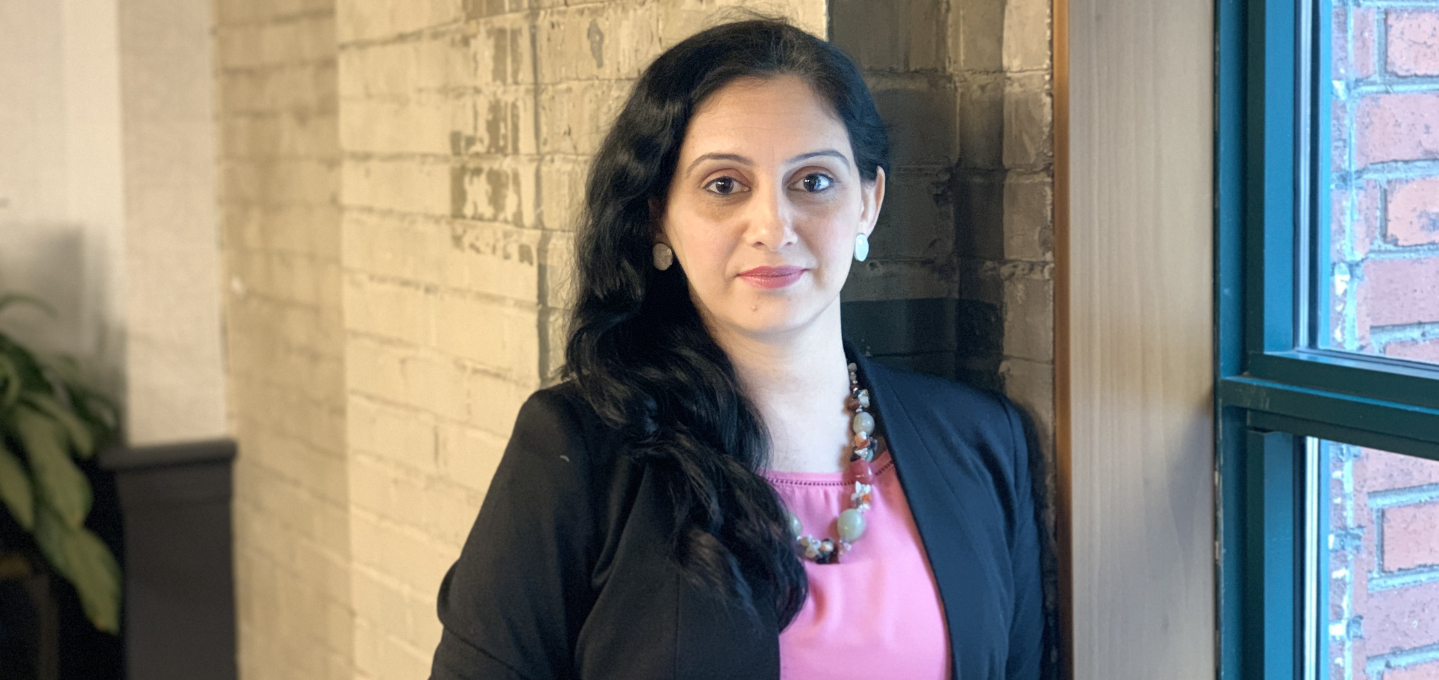Originally from India, Divya is a banking and finance professional with over a decade of experience working with a multinational global bank in Dubai. In October, 2018, Divya and her family decided to emigrate to Canada for a better quality of life. One would think that finding a job in their desired field would be relatively easy for someone with such extensive experience. However, that wasn’t the case. This is Divya’s story.
I grew up in India and completed an MBA in Financial Management before moving to Dubai. Working at a global bank in Dubai for almost 12 years, I progressed through my career by spending time in different roles and gaining exposure to various functions. I worked in Regional Wealth Management, part of Business Risk and Control Management, and had the opportunity to interact and work with global teams.
I became certified as a financial advisor and also achieved accreditation from the Association of Certified Anti-Money Laundering Specialists (ACAMS) for anti-money laundering. The ACAMS certification is recognized globally and I found it to be a valuable addition to my resume.
Given my extensive experience in the role that I worked in, exposure to various processes in the banking industry and the certifications I had, I felt confident about easily finding a suitable role in Canada. However, real-life experiences were very different from what I had imagined.
The first quarter: Settling in and exploring the job market
After moving, I planned to take a break for six months but I soon learned that it can take a while to find a job in your desired field. So I started applying for positions within the next month.
To get a sense of the Canadian job market and workplace culture, in November, 2018, I enrolled in a bridging program organized by the Newcomer Centre of Peel. At the end of the program, there were some co-op jobs that were offered to us. However, at the time, since there weren’t any available positions in banking, I chose not to apply. This eight-week bridging program helped me understand the job market, develop my resume and navigate the networking landscape. I put my learning into practice when I started applying for jobs in December, 2018.
The second quarter: Applying for many jobs but only receiving a few interviews
My efforts started to yield results between January to March — I received about three to four preliminary screening calls from recruiters but I didn’t make the cut for the next interview rounds. It was only two months later, towards the end of March, that I got invited to in-person interviews with three of the leading banks in Canada. I felt optimistic and thought the interviews went well but after the final round, unfortunately, I didn’t get the offer.
Most interviews I attended were similar in structure — a quick self-introduction followed by some behavioural questions and an assessment of strengths and weaknesses. I realized that having a catchy introduction or an elevator pitch was very helpful in capturing the recruiter and hiring manager’s attention.
During this phase, I was also attending job fairs and actively networking. I received some valuable advice, learned about the recruitment processes at different organizations and continued sending out more applications but again, none of the opportunities converted.
The third quarter: Leveraging newcomer resources to improve outcomes
I was focused on wanting to start my career in Canada at the position I had in Dubai. Like many other newcomers, I wanted to avoid starting from scratch. My experience coupled with the globally-accepted certifications I’d gathered definitely helped me build a strong case.
However, at the time I felt as though I wasn’t making much progress and had limited leads. I was starting to lose confidence and wanted to give up but then I thought to myself, “I should start again.” So, in April, 2019, I decided to register with ACCES Employment and also enrol in the TRIEC program.
I have always been working throughout my life. So staying at home was not easy for me. Spending time with my daughters and working on myself, networking and taking courses helped me stay positive and optimistic.
With ACCES, I re-learned the basics of resumes and interviews. It wasn’t easy because I had already spent eight weeks learning the same topics. It felt unnecessary but I wanted to try it again. In comparison, the TRIEC mentoring program was refreshing. In June, 2019, I was matched with a mentor who was a senior professional from RBC. He guided me for almost three months and helped me with resume edits and mock interviews.
The fourth quarter: Finally finding an opportunity in my field
During this time, I felt positive and continued networking and applying to relevant job postings, but what followed was three to four more months of radio silence; I didn’t receive a single call for any interview.
Finally, in October, almost a year after moving to Canada, I received an interview call from RBC. I successfully cleared all the rounds and landed a job offer. During my initial days in Canada, I thought that since I had experience working at an international bank, I would find a job rather easily. However, reality was so different.
When I finally received a call from my manager informing me that I’d got the job — it was one of the happiest moments of my life. I was proud of myself; I felt independent and happy. Now that I’ve settled in my job, I see so many opportunities for me to grow professionally. I want to work on my leadership skills and be a leader soon.
In my first year in Canada, I faced a lot of challenges and even though it was difficult on the career front, I still made it and you can too.




